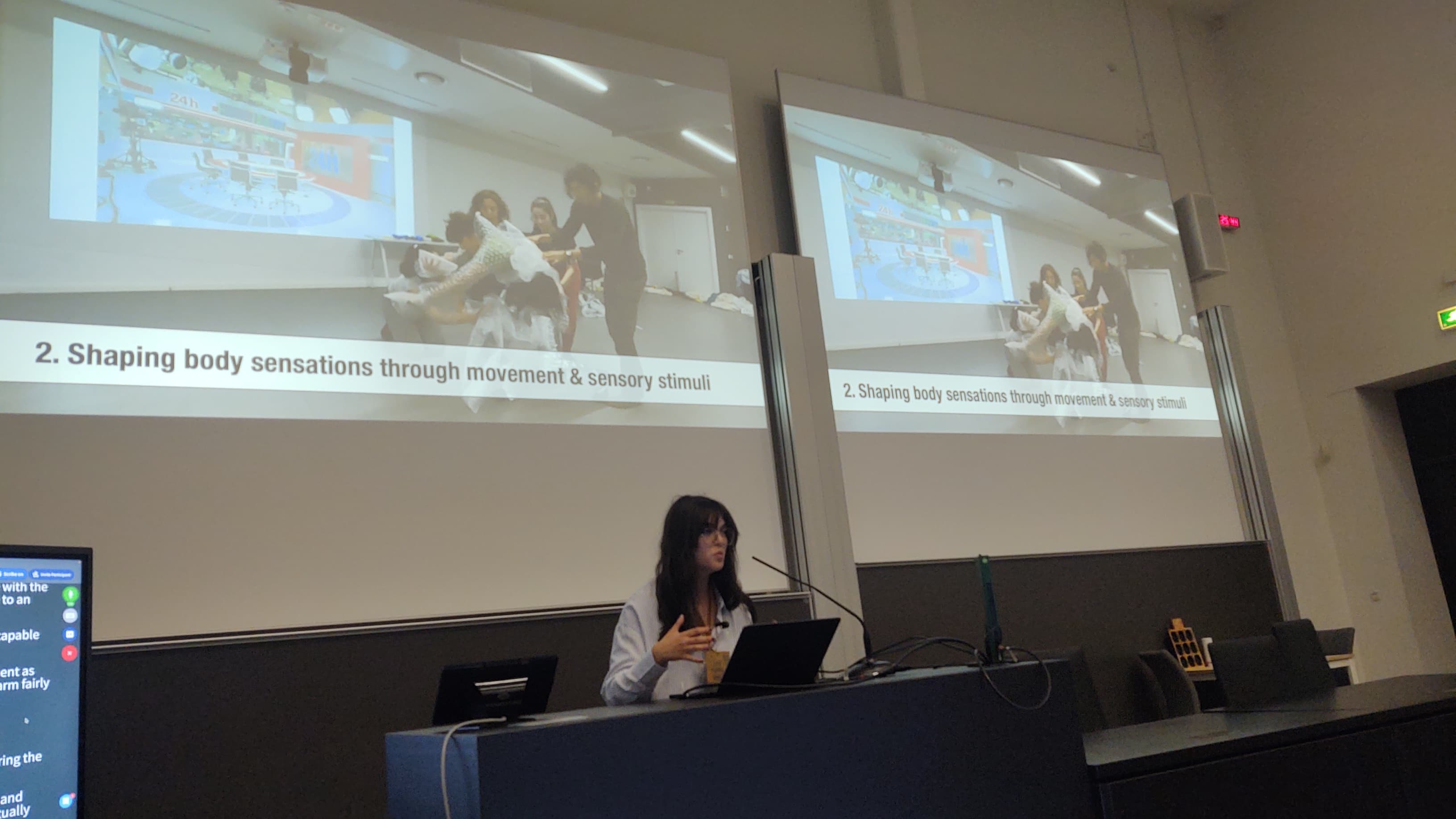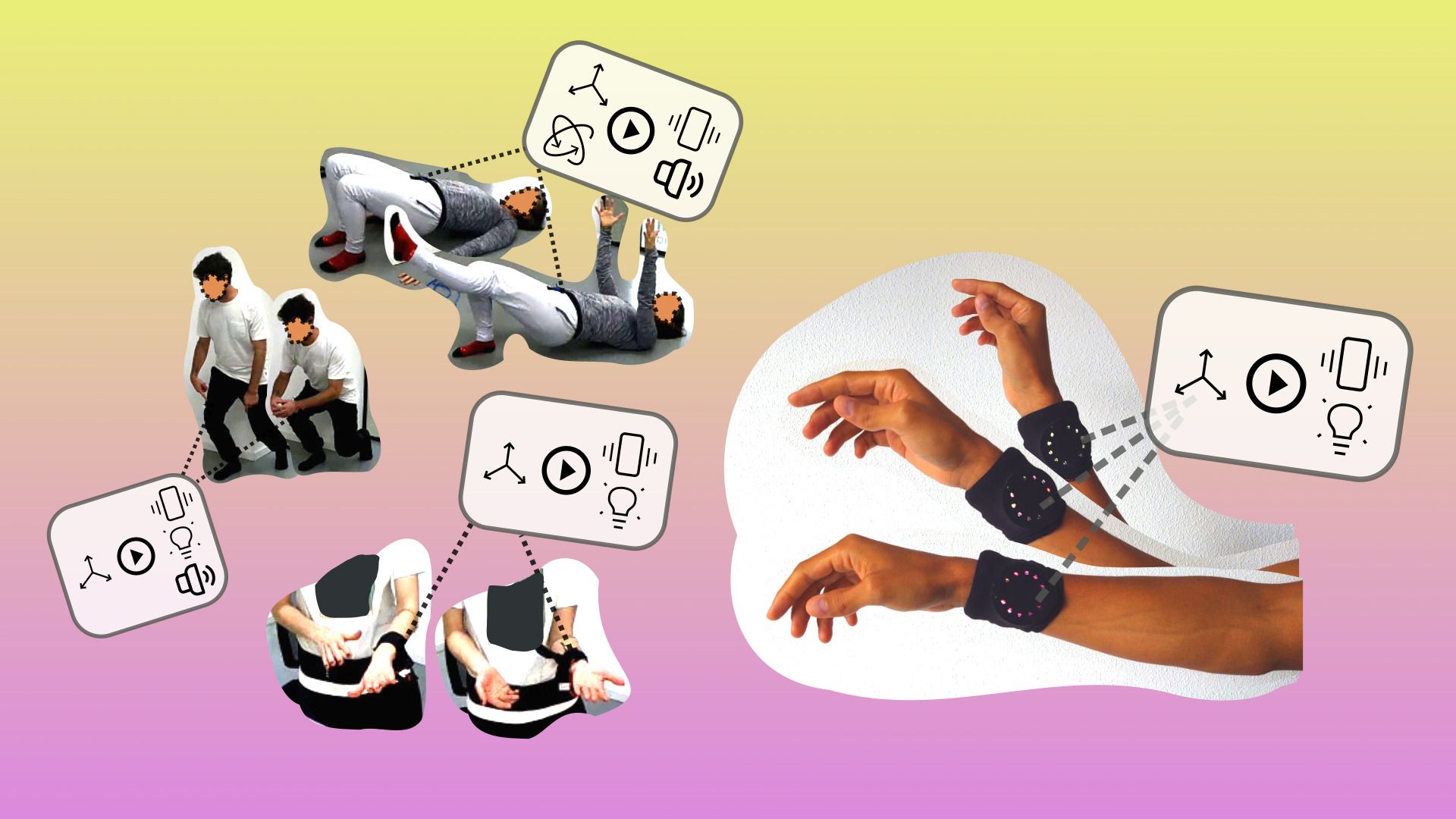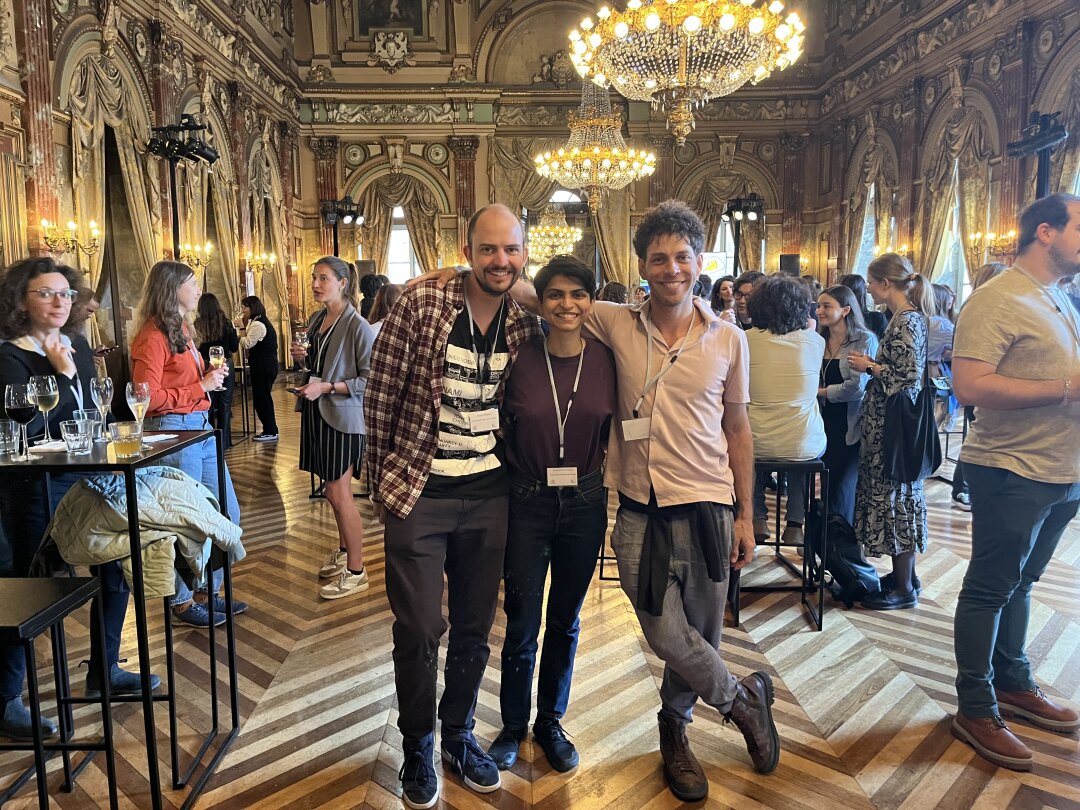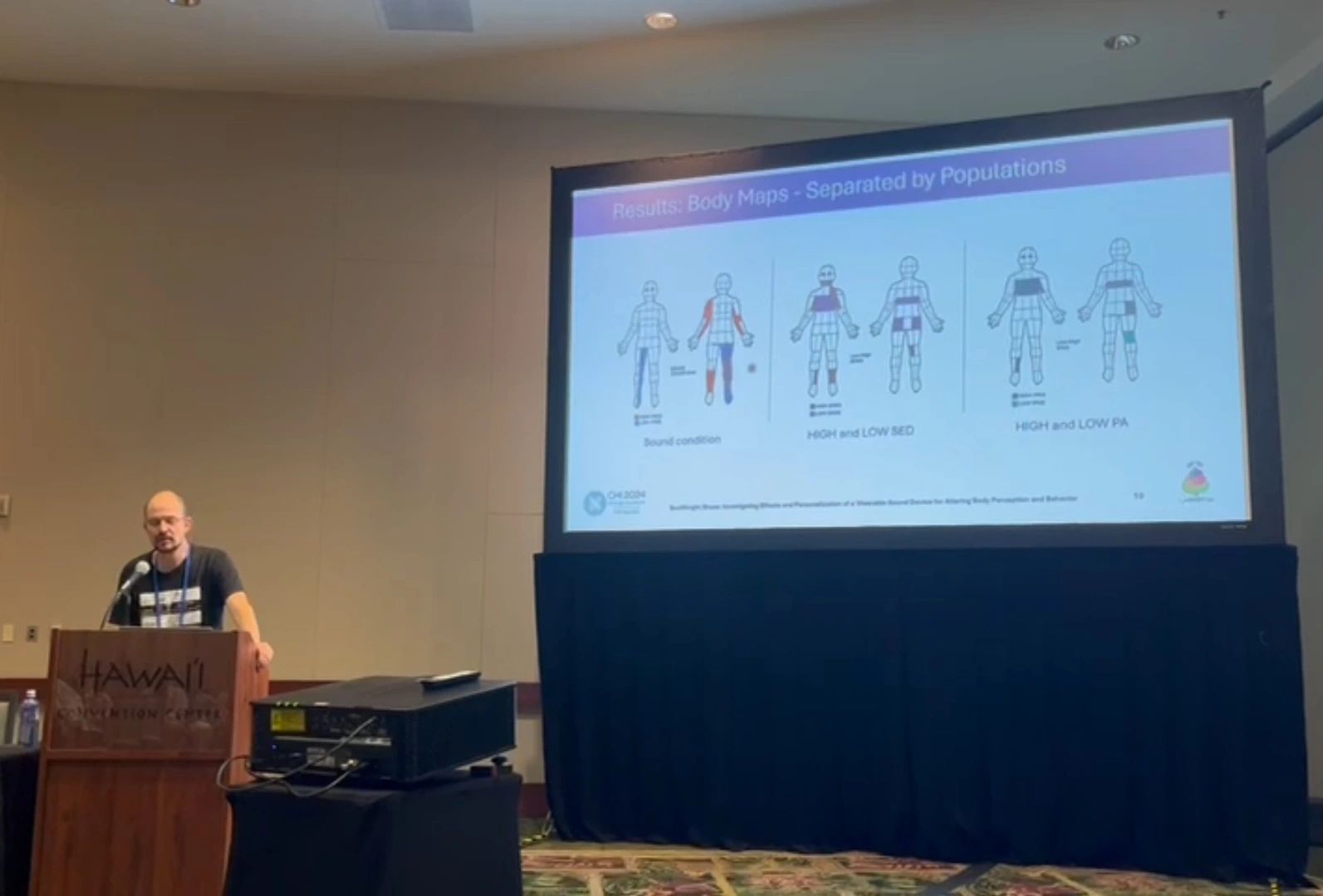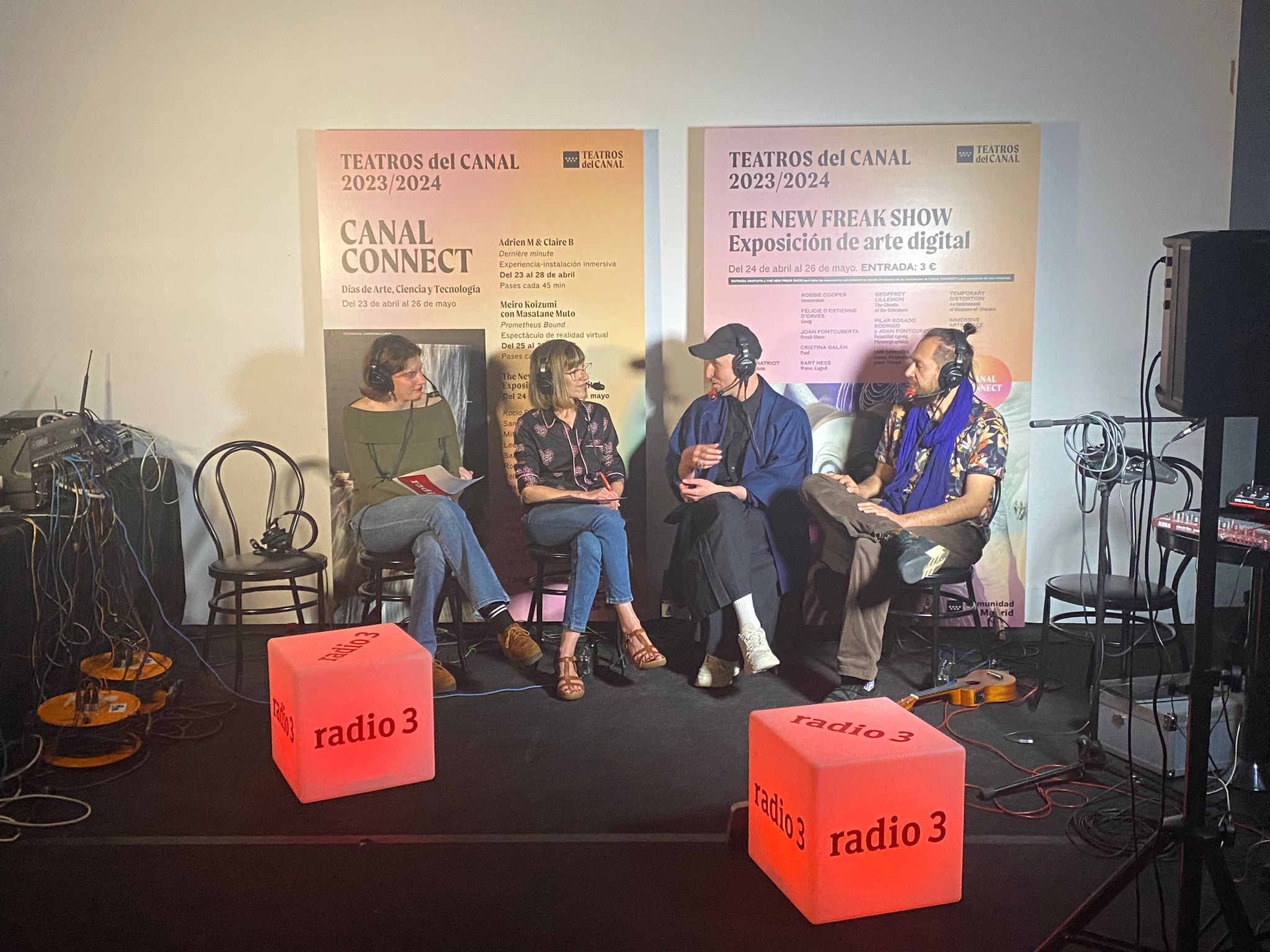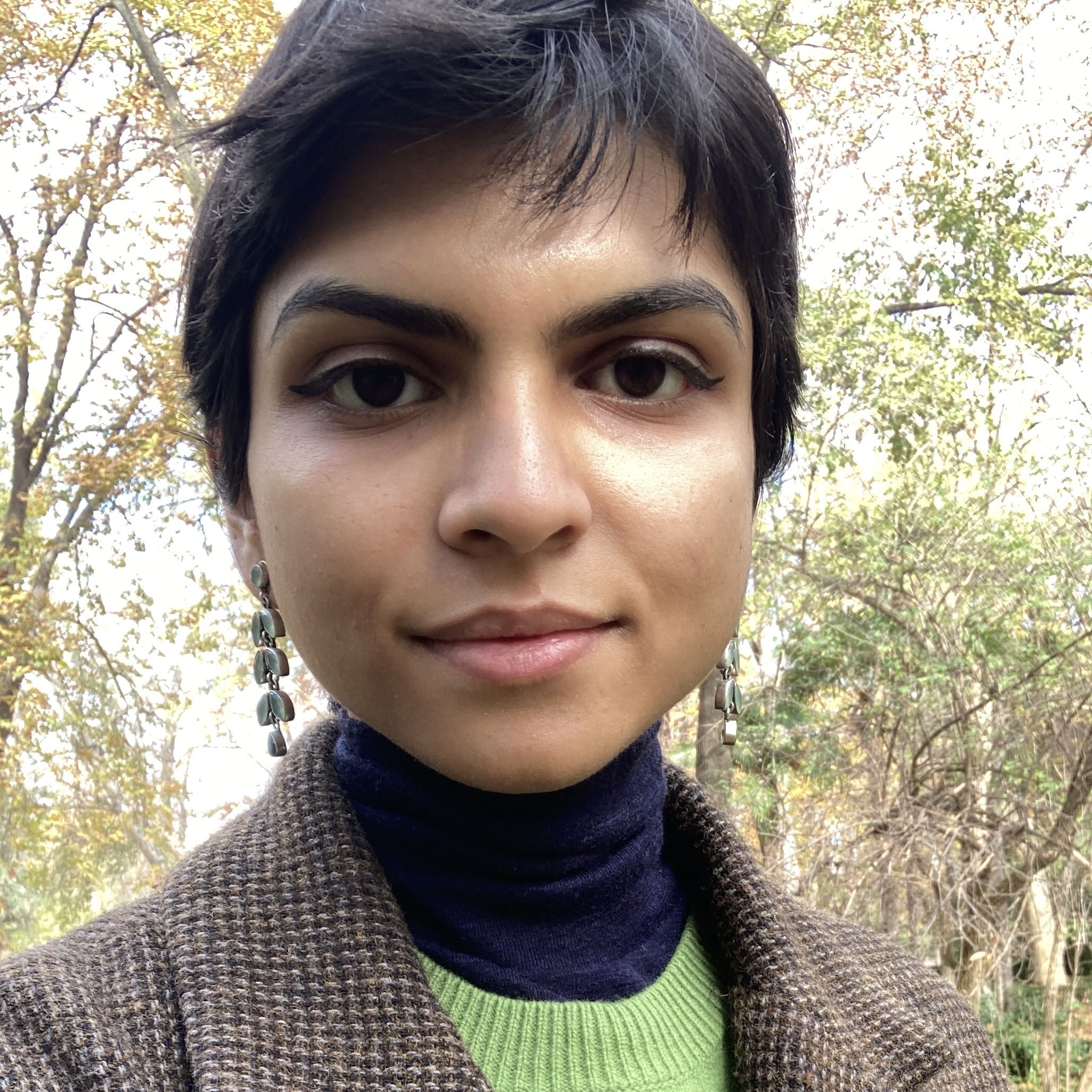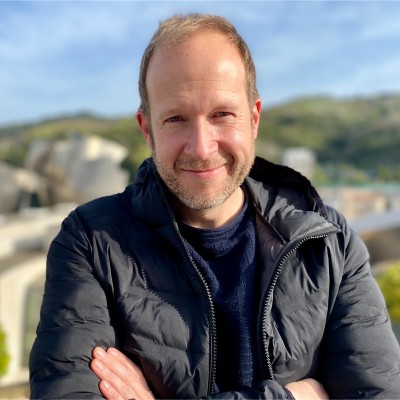Participation in DIS2024
Laia Turmo Vidal and José Vega-Cebrián participated in DIS2024, the ACM Conference on Designing Interactive Systems 2024 conference, which took place in ITU Copenhagen, Denmark,
Thesis Talks 2024
Amar D’Adamo, and José Vega-Cebrián participated in the UC3M Thesis Talk 2024 contest, presenting the contexts and results of their theses in less than 4
A journey to re-embodiment, Mohammad (MH) Rahmani, PhD research candidate in Computer Science and Technology, Universidad Carlos III de Madrid
Date: 2024-05-28, 11:00h UTC+2
Speaker: Mohammad (MH) Rahmani, PhD research candidate in Computer Science and Technology at UC3M
Title: A journey to re-embodiment
Abstract:
In this presentation, I will discuss my past, highlighting the relevant experiences and projects that have brought me here today. I will go into parts of my portfolio that showcase my abilities, as well as my thought process and general interests, both historically and moving forward. This will hopefully give you a good picture of what you can expect from me and how I can be helpful in the future.
Biography:
Mohammad (MH) Rahmani is a PhD research candidate in Computer Science and Technology at UC3M, currently focusing on Embodied Perception through Interaction and Sensations.
He was a research fellow at SAIL Lab in University of New Haven focusing on real-time neurofeedback systems, signal processing, and artificial intelligence in Brain-Computer Interfaces (BCI); as well as developing Text-to-Speech (TTS) models for low-resource languages. With a background in observational astronomy, computer science, and multi-media production, Rahmani holds a Master’s degree from NYU’s Interactive Telecommunications Program (ITP) and a BSc in Computer Science. He has professionally worked in R&D roles on LoRa Chirp based IoT consumer devices, safety surveillance systems, and image processing.
Additionally, he has served as the Vice Chair of Tehran ACM SIGGRAPH, and his creative work has been featured in various galleries, hackathons, and festivals. He is an interactive media artist and new media researcher known for immersive spatial mixed reality experiences. His work has been showcased at Archuwum Art Transparent, TADAEX Festival, SIGGRAPH Conference, and SFA Projects.
Participation in ESCAN 2024
Amar D’Adamo, Marte Roel and Karunya Srinivasan participated in ESCAN 2024, the 7th bi-annual ESCAN (European Society for Cognitive and Affective Neuroscience) meeting which took
Participation in CHI 2024
Amar D’Adamo participated in the CHI Conference on Human Factors in Computing Systems (CHI ’24), in Honolulu, Hawaii (May 11-16). He presented the following paper:
Participation in Canal Connect 2024
Joaku (Joaquín R. Díaz) had a double participation in Canal Connect 2024, a festival for the intersections of the Arts, Science and Technology in Teatros
MH. Rahmani
Mohammad (MH) Rahmani is a PhD research candidate in Computer Science and Technology at UC3M, currently focusing on Embodied Perception through Interaction and Sensations.
Mohammad Mahdi Dehshibi is now an IEEE Senior Member
Mohammad Mahdi Dehshibi was promoted to the grade of IEEE Senior Member! This recognition reflects the exceptional collaboration with Mohammad’s dedicated students and esteemed senior
Karunya Srinivasan
Karunya Srinivasan has a multidisciplinary background in Psychology, Expressive Arts Therapy, Somatic Education and Cognitive Science. Her studies and work have followed her belief that it is in movement where the body finds its meaning.
Seeing (a pre-registered protocol) is believing, Miguel A. Vadillo, Associate Professor at Universidad Autónoma de Madrid, Director of the Cognition, Attention, and Learning Lab (CALL)
Date: 2024-05-07, 14:00h UTC+2
Speaker: Miguel A. Vadillo, Associate Professor at Universidad Autónoma de Madrid, Director of the Cognition, Attention, and Learning Lab (CALL)
Title: Seeing (a pre-registered protocol) is believing
Abstract:
How much confidence should you put on a particular hypothesis if p < .05? From a rational point of view, the credibility of a scientific finding depends on three parameters: a) the prior likelihood of the hypothesis being true, b) the probability of a significant result if the alternative hypothesis is true, and c) the probability of a significant result if the null hypothesis is true. Unfortunately, (a) is largely subjective. (b) and (c) cannot be properly estimated with the information typically reported in scientific papers, but meta-scientific studies suggest that there are reasons to be pessimistic. Psychological research is often underpowered, which means that (b) is too low, and everything suggests that many significant findings could be the result of questionable research practices, casting doubt on (c). When we read a non-registered study, we can never know if the result is reliable or if the data were simply “tortured until they confessed”. The crucial contribution of pre-registration is that it ensures that the false positive rate is not inflated by questionable research practices or selective reporting. Furthermore, pre-registration forces researchers to plan their sample size based on a formal power analysis, ensuring that (b) is sufficiently large. As a result, in this talk I will defend that it is logical to put more faith in pre-registered studies than in non-registered research. Although non-registered research is not without value, pre-registration is definitely worthwhile.
Biography:
Miguel Vadillo is associate professor at Universidad Autónoma de Madrid, where he coordinates the Cognition, Attention, and Learning Lab (CALL). He is also the current president of the Spanish Society for Experimental Psychology, member of the ethical review board at UAM, and member of the scientific committee of the National Research Agency. His research is focused on statistical problems in research on implicit learning and other unconscious mental processes and also on meta-analytic methods for the detection of biases in scientific research.
https://mvadillo.com/

